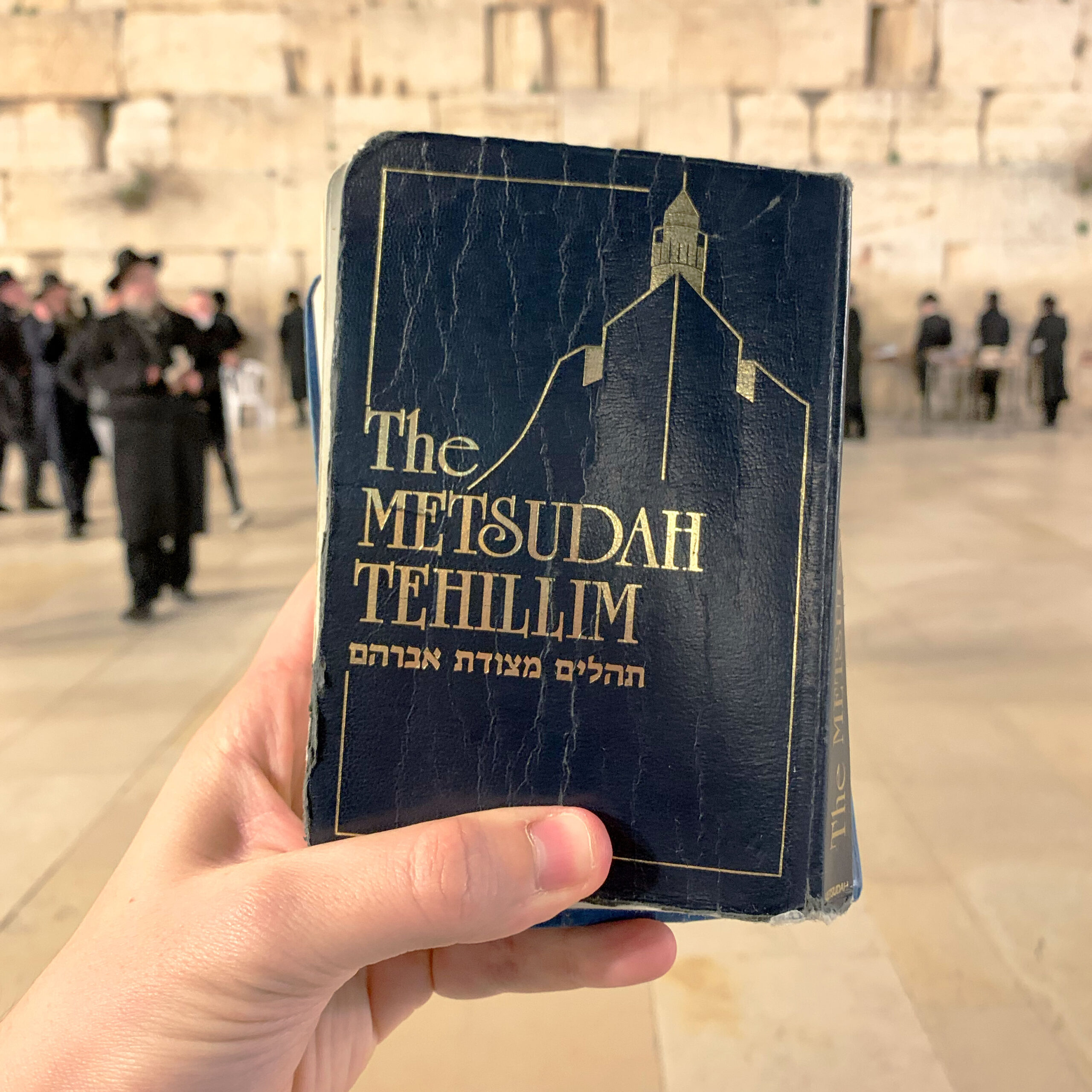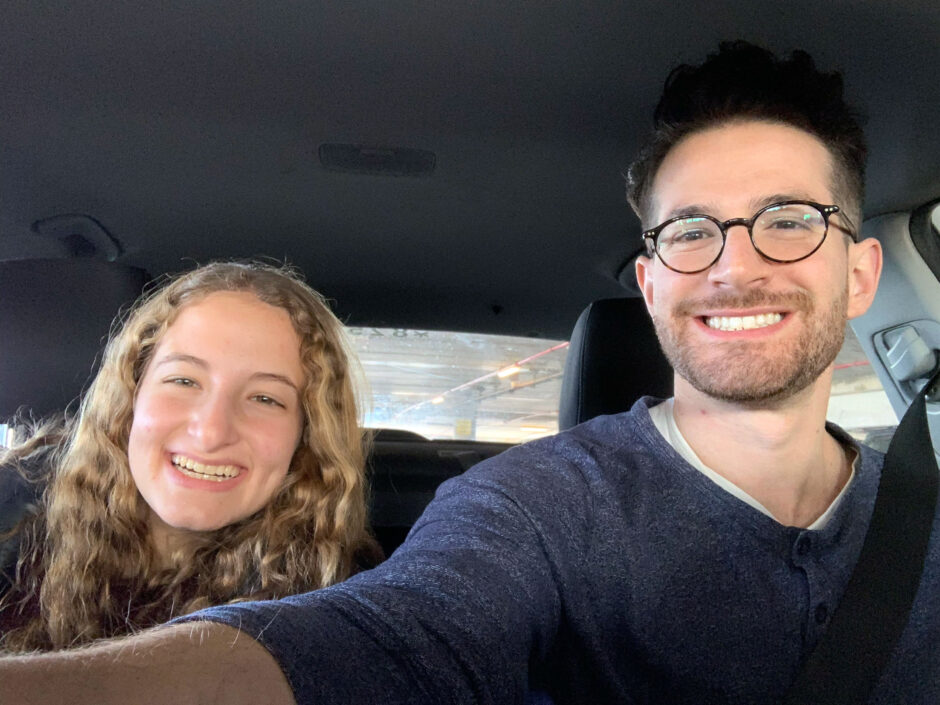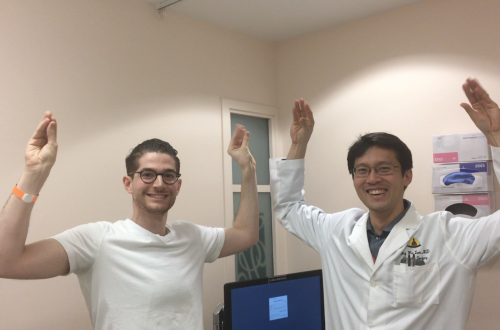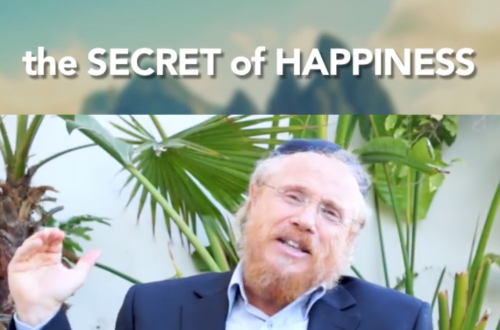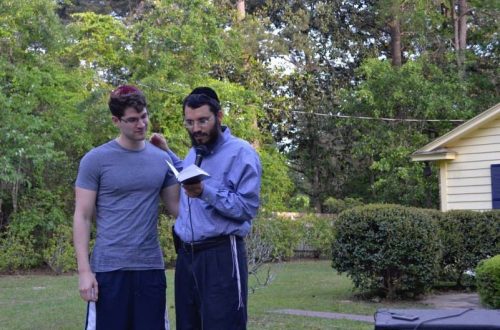As waited for results with my cousin, the doctor finally said, “Ehhh. You are a healthy person.” With gratitude to Hashem, another clean bill of health, and first bloodwork in Eretz Yisrael. Almost four years down, one to go! At this point the doctor said the chances of anything coming back are extremely rare – Baruch Hashem! Sometimes during a challenging day I look back at my blog and read my own words. It’s easy to forget, and I can’t believe I even wrote any of this.
Ackerbatics
By Daniel Ackerman
I’m sitting here with cancer,
I pray up high, I want an answer,
Perhaps I will never know,
Which is why life takes us, to and fro,
We tend to swing back and forth,
One day it’s south, the next it’s north,
Have comfort that G-d pulls the cord,
With this trust, we’ll know we’ve soared,
So when earth and sky appear inverse,
It’s the perfect time, to converse,
But if you find yourself depressed,
You’ll start to push Him, from the nest,
Like a parent who loves their child,
His judgment and kindness, will not be mild,
Don’t be discouraged and let your head be lowered,
For in this position, you’ll start to move forward,
Whatever you do please don’t resent,
For in your heart, it leaves a dent,
Thus when we learn to accept,
Your desired prayers, will be met,
So if you want to learn and grow,
Love the test, and seeds you’ll sow,
In your mind, you can choose to die,
In your mind, you can choose to fly,
You’re true self can’t help but lift,
When you realize, it’s all a gift.
That poem was written while I was getting chemo. I guess it was squeezed out of me. At this point though, I now mentally cross out “cancer” and replace it with anything that’s a challenge if stuck. I remember being so shocked with the diagnosis, it made so little sense, there had to be something good to take away – some hidden message. Even when the doctor walked in who shared the shocking diagnosis blew me away. His scribbled name tag looked like it said Dr. Emunah. I did a double take. Was this the twilight zone? But no, it was Dr. Enumah. Didn’t look like it would mesh to the story.
I remember crying so hard when he said my CT scan results looked like cancer. It was as if I was staring right into a black hole. About to fall in – Rabbi Aaron called, said he happened to be thinking about me, and asked how I was doing. I was such a mess. In the midst of mumbling sadness, Rabbi Aaron cut to the chase and told me, “you have no idea. You have no idea how much Hashem loves you.” He said, in life, Hashem takes his most promising athletes and gives them the toughest tests. He told me right now, you just started training for the Olympics (but not Beijing). At the end of this you’re going to be a Super Star. Those words pulled me back from the psychological edge of a very dark place.
I was learning with my chevruta this week and it literally says in the Mishna to bless on the bad like the good, and bless on the good like the bad. This is not a feel good thought – it’s actually a commandment. It’s incredible, and the depth of Torah wisdom here is infinite and real. As real as life itself. Sometimes we use the term blessing in disguise, or realize something frustrating ended up working out really well. Or the overused “why do bad things happen to good people?” How often do we hear these stories across the spectrum? Being alive is our ultimate reoccurring daily blessing. What happens to us is just a limited human perspective of an emotional capacity to deal with it as revealed good or concealed good in the context of a greater purpose beyond the limited understanding of how we believe life should or shouldn’t go. However, this is precisely is where we get the opportunity to learn a golden lesson, leave the shell of the experience behind, and internalize the discoveries of essential truths to power us to the next level and accomplish our missions in this world.
When I was sitting in the hospital and I had just been told I had cancer, looking back, the black hole that I thought I was starting into while crying wasn’t really a black hole of darkness and despair, it was the darkness due to the depth of the vessel that had just been created into which Hashem would help me become a better receiver of his goodness.
It really hit me during Mincha after my bloodwork today. At Modim, I just couldn’t hold back the tears. Here I am, going for bloodwork, an Israeli citizen, cancer free, thanking you for everything. In the book Shar Ha Bitachon (Duties of the Heart), we are given a a deep and clear understanding between the relationship of Emunach and Bitachon. Emunah is faith, and Bitachon is trust. Many of us have Emunah, but often lack Bitachon. I know Hashem is there, but do I really trust what’s going on, all the way down to the little details? I know my friend is standing behind me, but if I fall backwards, will they catch me?
“The word bitachon is a derivative of betach, certainty. Not only do we believe that G-d is able to provide, rescue, grant success, but we are absolutely certain that G-d will do just that. To the point that we are free of anxiety. In subtler form, we can discern the rationale behind this approach in the same word, bitachon. The term can be seen as a derivative of tach, to plaster, as in the command, tach et habayit, plaster the house (Leviticus 13:42). Plaster is a bonding agent that holds together all that it covers. In social terms, we speak of cementing a friending. The rapport brings people together, so that in some regard they are as one entity. The greater the friendship, the greater the bond, and, in turn, the greater the trust, because each party is certain that the other will only act in their best interests due to their deep bond.”
Emunah without Bitachon is Enumah. It’s backwards – and it doesn’t make much sense. So perhaps Dr. Enumah was the best person to break the news – not Dr. Emunah. That would have been too obvious. How many endless psukim are there in Tehillim that allude to Hashem hiding from us so we can find him, bringing us lower so we can reach higher, crushing us harder so that our essence comes out. Don’t we all love a good football game where one team is getting destroyed but then fights back, in the 4th quarter, wins, and sets multiple records? Granted, it doesn’t always have to be like that, but it gives us an opportunity to see what we’re really made of.
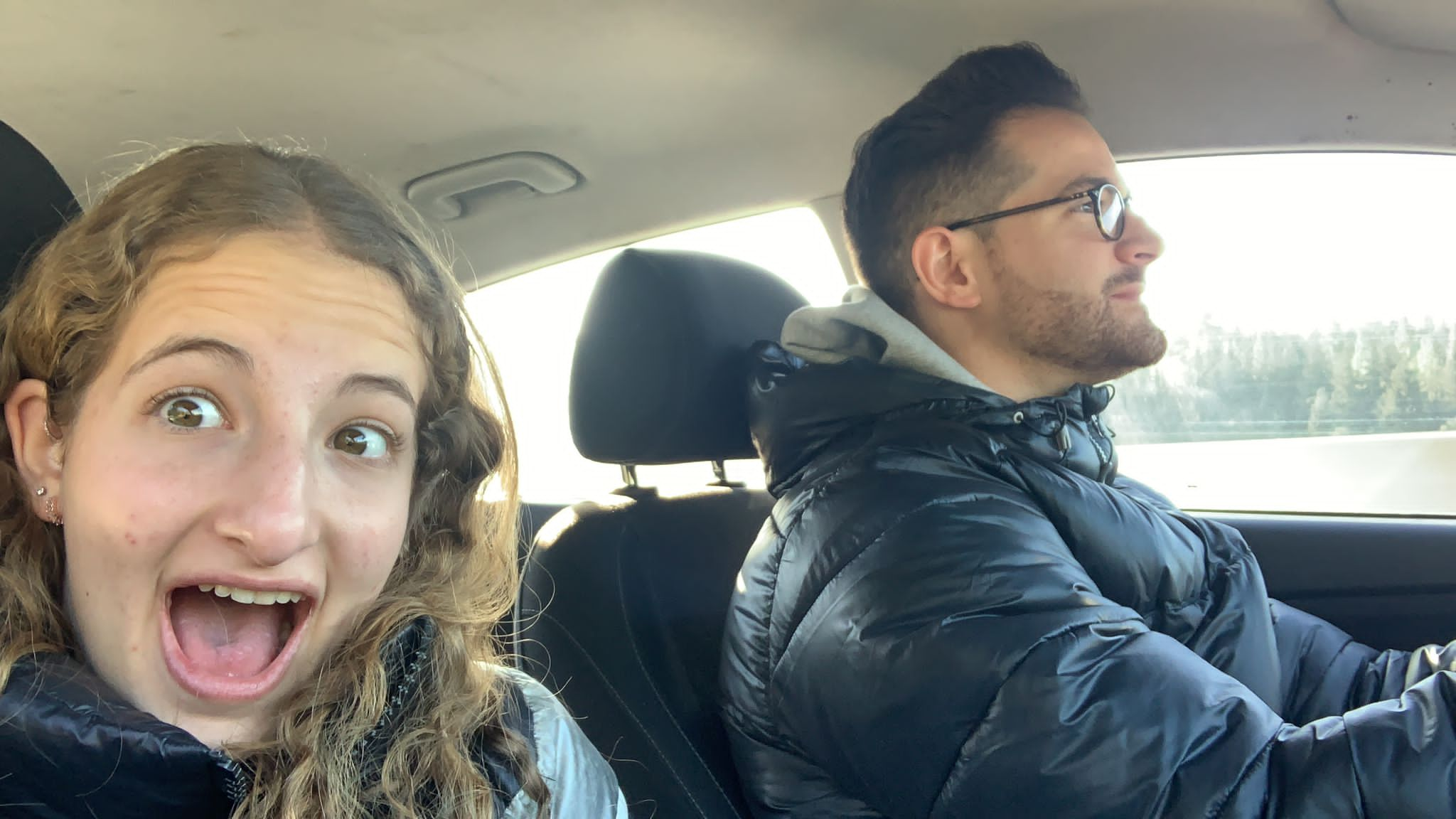
In this weeks Torah portion of Trumah, we learn about the building of the the Mishkan (the traveling sanctuary) and the three types of Trumah (offerings for the construction of the Mishkon) brought by the Israelites. In a Psicha of the Rebbe, we see how we can learn from each of the three times in which the commandment to give trumah were mentioned, we can learn how each of the three corresponded to A) a different physical part of the Mishkon in which they were used for, and B), their spiritual connection to our service towards Hashem. The first Terumah that was contributed was designated and used for the sockets for the foundation of the mishkan. This alludes to the study of Torah which is the foundation to all of what it means to be a Jew. The second Terumah corresponded to the monetary contribution which were used to the communal service. This alludes to our avodah (work) in this world. That work refers to our tefilah (prayer) of today in place of the korban (sacrifice) that was brought in the times of the temple. Without the temple today, our service of the sacrifice comes from within through heartfelt prayers that rise like the aroma of the korban. Third, the last Trumah corresponds to all other physical materials needed to build the Mishkon (which enabled all the services to be fulfilled). This alludes to the mitzvot. Through fulfilling them, we enable all the things that we learned about and davened for to be expressed in the physical world which is the ultimate service of Hashem.
You can’t have one without the other. The sanctuary for Hashem needs Torah, Tefilah, and Mitzvot in order to fulfill its purpose. If we sit and learn all day, but omit the heartfelt communication above and daily contributions with fellow man below, we’re disconnected from reality. If we only focus on those around us and daven all day in a state of spiritual ecstasy, then we miss the opportunity to dig a strong foundation of learning Torah into the ground. This supports the entire platform that the aroma of our avodah rises from and which others can stand on as well.
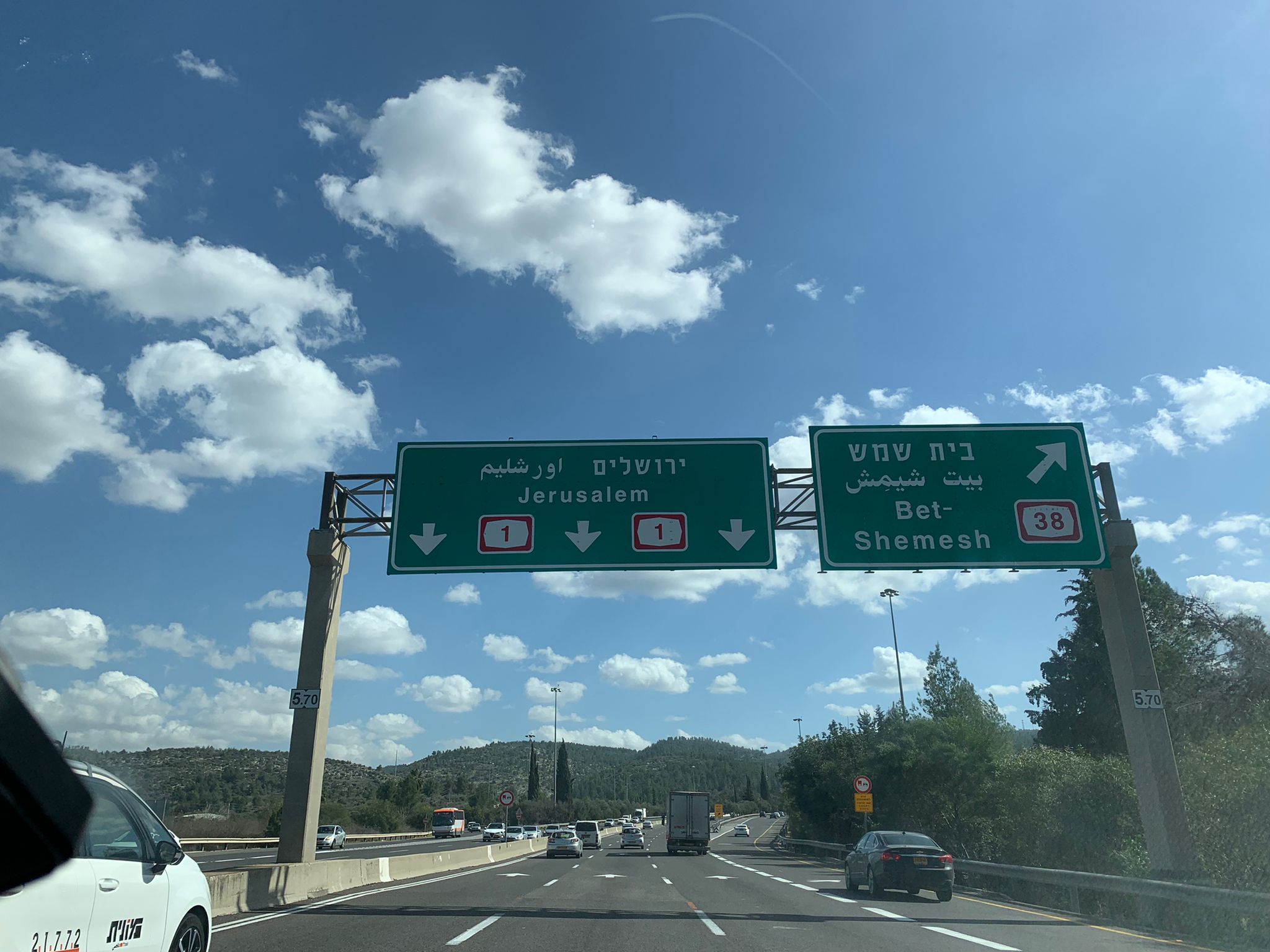
So to in our own lives as Jews, everyday we are lucky to have the ability to bring Torah, Tefilah, and Mitzvot into this world. And now, as Rosh Chodesh Adar passes, and we’ve entered into the happiest month of the year (this year we have 2 months of Adar since it’s a leap year – double happiness) there’s incredible opportunity to elevate everything. We should all have the Emunah that the creator is with us in all of our life’s experiences and Bitachon that everything that happens to us in our lives is not done to us but rather for us, and is for the ultimate good. May these two powerful forces infuse the building of individual sanctuaries and become a dwelling place for Hashem.
One last thing to do now is head to the Kotel to thank Hashem. This is the first time I get to do that after another clean bill of health. I remember when I was sick, the entire world was praying for me. Now that I live in Israel, it’s one of my favorite things to spend time reading Tehillim at the Kotel and continue giving back to those who built me up when I needed it the most.
